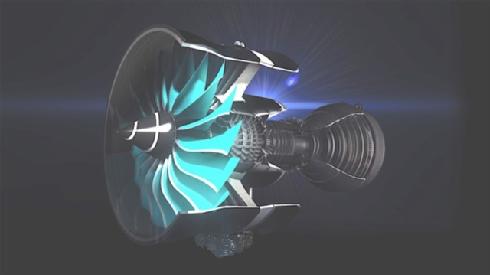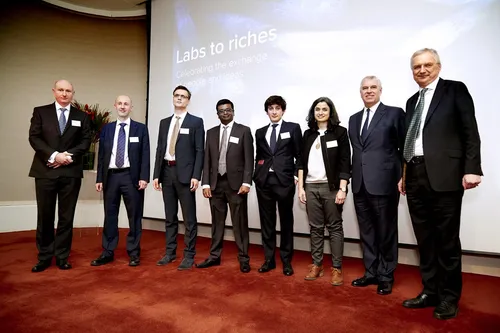Applied Computing News
Professor Feng Hao provided Royal Society International Collaboration Award

Royal Society has provided an International Collaboration Award of £225,000 to Professor Feng Hao in the Department of Computer Science, University of Warwick to build an international collaboration with Professor Bimal Kumar Roy of the Indian Statistical Institute on “strengthening e-voting in India”. The project will run from December 2018 to December 2021.
India is the largest democracy in the world by population. As of today, Electronic voting machines (EVMs) have replaced paper ballots in all national and general elections in the country. The aim of this international collaboration is to develop an electronic voting process that will be fully verifiable, hence providing stronger guarantees on the tallying integrity of an election. This builds on the UK team’s leading research on end-to-end verifiable e-voting without tallying authorities (also known as "self-enforcing e-voting") and the India team's strength on cryptography and statistics research. The success of this project will not only provide an invaluable case study, but also a potentially portable solution for other countries that face similar development problems in deploying e-voting securely (e.g., Brazil, Nigeria).
About Royal Society International Collaboration Award
The Global Challenges Research Fund (GCRF) is a £1.5 billion fund announced by the UK Government to support cutting-edge research that addresses the challenges faced by developing or Low and Middle Income countries (LMICs). As part of the GCRF, the Royal Society has launched an International Collaboration award to enable outstanding UK research leaders to develop international collaborations with the best leading researchers from around the world. The award is for three years and offers an exciting opportunity to foster and promote international collaboration between outstanding research groups in the UK and overseas, with a view to supporting work on global challenges and problems facing developing countries.
More details about this award can be found at: https://royalsociety.org/grants-schemes-awards/grants/international-collaborations/
£14.7m industry partnership to boost engine research

Image ©Rolls Royce Plc
Scientists at the University of Warwick’s Department of Computer Science are to benefit from an initiative that seeks to build links between industry and researchers, as part of a project with Rolls-Royce to create a detailed simulation of a gas-turbine engine in operation.
The research aims to lead to the virtual certification of gas turbine engines, with the researchers also seeking to develop the next generation of engineering simulation and modelling techniques during their project.
Their challenge combines fundamental engineering and computational science research and will tackle a level of detail never before attempted in such a simulation.
The project, to be carried out over five years, involving the universities of Warwick, Bristol, Cambridge and Oxford and led by Edinburgh and is one of seven across the UK to benefit from a £42 million programme that aims to build links between the UK’s research base and industry partners.
This is one of two projects the University of Warwick has been granted money for by the Engineering and Physical Sciences Research Council (EPSRC) Prosperity Partnership, as WMG at the University of Warwick was also granted £7m for development of Rapid Alloy Prototyping. See: https://warwick.ac.uk/newsandevents/pressreleases/the_virtual_factory/
Commenting Professor Stephen Jarvis, Deputy Pro Vice-Chancellor for Research at the University of Warwick and the Warwick Principal Investigator on the Rolls-Royce Prosperity Partnership, said:
“The University of Warwick has been working with Rolls-Royce for the past ten years, investigating ways in which high performance computing can boost the productivity of aircraft engine design and engineering.
“We are delighted to be working with such a strong team of university and industry partners to deliver next generation engineering simulation and modelling capabilities."
Professor Philip Nelson, EPSRC’s Executive Chair said:
“Our first round of Prosperity Partnerships are proving a great success. They are bringing universities and industry together and applying the creative energies of both to engineering and scientific challenges.
“We are confident that these projects will deliver real benefits to all their partners and help the UK research, discover and innovate.”
The research project will begin in October 2018 and will be led by Professor Jarvis and Dr Mudalige from the Department of Computer Science.
Dr. Gihan Mudalige Awarded a Royal Society Industry Fellowship

Dr. Gihan Mudalige has been awarded a 4-year, Royal Society Industry Fellowship to work with Rolls Royce plc., on their turbomachinery design simulation applications from September 2018.
Companies such as Rolls-Royce, crucially depend on High Performance Computing (HPC) based numerical simulation applications for the design of turbomachinery. These complex multi-physics and engineering applications, predominantly based on computational fluid dynamics (CFD), even in their simplest form, provide insights into aspects of aircraft engines which could not otherwise be achieved in the absence of physical testing. Developing such simulation applications is difficult and expensive, taking years to write, test and verify. They can easily contain millions of lines of code. Consequently, such programs have lifetimes of decades compared to the supercomputers that run them, which advances every 2-4 years. In the next five years, HPC systems are expected to reach thousand times the capabilities of current systems, attaining exascale (1018) performance where a single system can perform million-trillion computations every second. The range of processor architectures, networks, memory, their configurations and scale make it difficult to know what type of systems will dominate exascale machines and how best to programme them to gain optimal performance. Poor performance means less simulation for your money or worse, a completely inoperable suite of codes. Such an outcome will mean a significant loss of investment. The underlying objective of this fellowship project is to re-design Rolls-Royce’s simulation codes to meet these challenges. This work will utilize the OP2, high-level embedded Domain Specific Language developed by Dr. Mudalige and his research collaborators at University of Oxford, PPCU Hungary and Imperial College London, aiming to re-engineer Rolls-Royce’s CFD applications suite and deploy it for production simulations.
Photo (© The Royal Society): The Royal Society Industry Fellows of 2018 (Round 1): from left to right Duncan Maclachlan, Steve Morgan, Del Atkinson, Gihan Mudalige, Anas Al Rawi, and Aurora Cruz-Cabeza, with HRH Prince Andrew, The Duke of York and Prof. Andrew Hopper, Labs to Riches presentation event, 20 March 2018, at the Royal Society head office in London.
